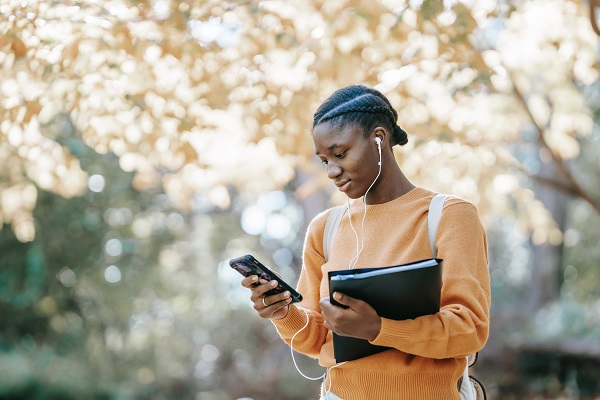Listening to music while studying can help students perform better.
According to a new survey of 2,000 Americans conducted by OnePoll for CSU Global, “80%” of people who listen to music while studying find it therapeutic and “75% feel it helps them focus and take in new information.” The research also found that “84% of students who reported playing music to study had a GPA above 3.2 vs 78% in students who reported not listening to music.” Classical music was the most common genre studiers reported choosing for learning experiences, followed by R&B, country, rock, oldies, and gospel; while jazz, hip hop, pop, and instrumental soundtracks were all at the bottom of the list.
Those who listened to music were more likely to use mnemonic devices, and to feel prepared for class and tests. They were also more likely to study more, reporting seven hours of studying per week in comparison to five and a half for those who didn’t listen to music. Music can help bring down the barrier of anxiety when it comes to tests and studying, and it been proven to have potential for a physiological impact on a listener’s mood. Relaxing music, or music that someone finds soothing in some way, can work against any natural fears about not performing well on coursework.

This isn’t the first study that has been done to identify the affect of music on scholastic performance. Previous research conducted in the 1990s suggested that listening to Mozart improved test scores and spatial reasoning. This became known as the Mozart effect, though other studies found no connection between musical stimulation and spatial reasoning, specifically. Another study identified what was referred to as the Blur effect; when studiers listened to the band Blur while testing, they performed better than those who didn’t. This led to the reasoning that listening to music to focus is more likely to help if the student enjoys the music being played.
But there have also been studies that suggest that songs with lyrics can cause problems with attention and concentration. This seems to contradict the notion that the most effective music is that which someone enjoys. So which studies are true, and which are false? Not everyone responds to the same kinds of music the same way, so some people see better results than others regardless of whether they enjoy what they’re listening to, whether the songs do or don’t have lyrics, etc.
There are some ways to increase the likelihood of a positive result when using music to improve the skills of studiers. Common recommendations to make music work suggest a listener should avoid music with lyrics or abrupt rhythmic changes, and instead choose slow-paced instrumental music played at a low volume (without commercial ads). This minimizes the chance of being distracted, while potentially maximizing the opportunity for a physiological response which can improve mood and motivation, two factors that are imperative to a positive and effective learning experience.
Sources:
People Who Play Music While Studying More Likely to Have Higher GPA, Says New Poll


Join the conversation!